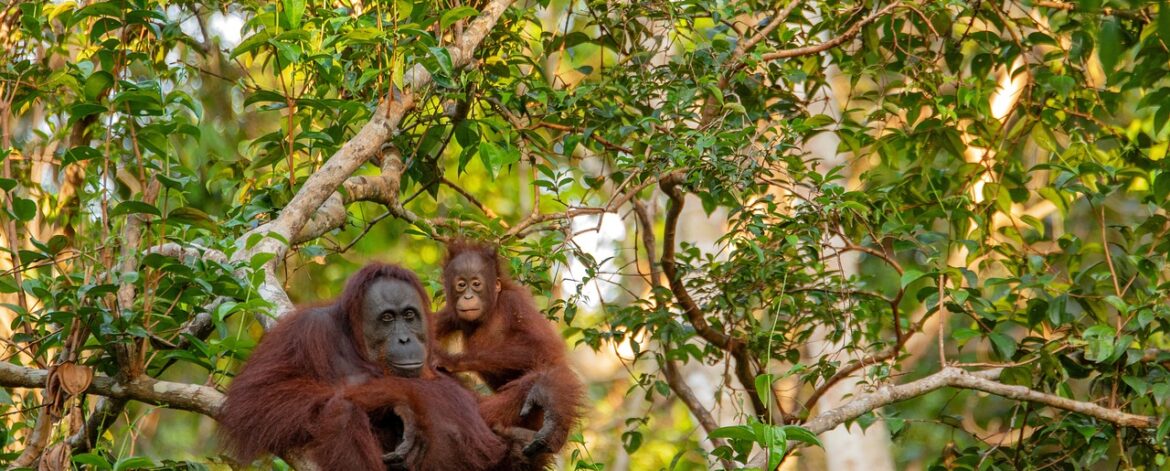Orangutans are great apes found in the wild on the islands of Sumatra and Borneo in Asia. They are the only great apes which live outside of Africa.
There are two species of orangutan: the Sumatran orangutan (Pongo abelii) and the Bornean orangutan (Pongo pygmaeus).
Orangutans are highly endangered, less than 15,000 orangutans are thought to exist in the wild.
The name orangutan comes from the Malay words ‘orang’, which means person, and ‘hutan’, which means forest. Orangutans have long arms and reddish-brown hair. They are also highly intelligent.
Interesting Facts about Orangutans
- Orangutans share 97% of the same DNA as humans.
- The orangutan is the only strictly arboreal ape.
- Male orangutans often weigh over 200 pounds.
- The orangutan’s sleeping nest takes about 5 minutes to construct.
- Orangutans live in the wild only in Borneo and northern Sumatra.
- Orangutans live to be about 35 years old in the wild; in captivity they can live 50 years or more.
- Orangutans are threatened by habitat destruction as people cut down trees for timber. Poaching also threatens these animals.
- Male orangutans have territories that they defend against other male orangutans.
Orangutan Behaviour
Orangutans are solitary animals spend most of their lives in trees. They sleep in trees and build two nests each day; one for a short nap and a stronger one for sleeping every night. Orangutans spend about 60% of their daylight hours eating or searching for food. They eat fruits, bark, leaves, flowers, and a variety of insects.
Reproduction
Orangutans have a slow reproductive rate, The gestation period is between 235 and 270 days. One baby orangutan is born every 7-8 years. Baby orangutans stay with their mother for 7-8 years. Orangutans have the longest childhood of the great apes.

